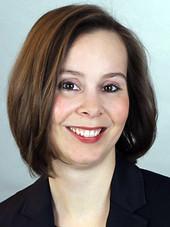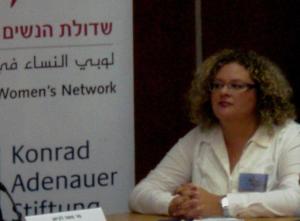Question 1: Recent events might evoke the impression that the number of attempts aiming at reducing women’s presence in public life is increasing. Generally speaking, how do you evaluate the situation of women and their status in Israel’s society nowadays?
The answer of the definition of the status of women in Israel today is a complicated one. Firstly, Israel is a divided society that is made up of a large variety of groups; different ethnic backgrounds, cultures, religions, and different socio-economic levels. It is important to examine the status of women from a general and wide perspective that examines Israel as a militaristic, macho and patriarchic society while at the same time acknowledging the different groups that make up Israeli society. Israel combines wide-ranging cutting-edge legislation that works to improve the status of women, including for example: the law to prevent sexual harassment, definitions of sexual violence, and women’s rights in the workplace. On the other hand, one can see the complete exclusion and expulsion of women from public arenas in places like “Haredim” communities. Israel today is at a crossroads where it must decide if it is going in the direction of advanced equal societies or if it is going back to being a discriminatory society.
Question 2: What is the driving force of some Jewish ultra-orthodox groups to demand gender segregation?
It is difficult for us to answer a question like this. There are those who claim that there is a simple deep-seated hatred of women; others claim that it is a reaction to the summer protests where women were the leaders and were the ones up front on stage. Their voices were heard far and wide. It is possible that we are dealing with an attempt to maintain certain models of separation of men and women. It is possible that many are scared of the many changes Israeli society is undergoing today.
Question 3: Do you believe a structural inequality between men and women exists in Israel that goes beyond the recent incidents?
Absolutely. Israeli society, like any other society is a patriarchic society. Additionally, the society identifies itself as macho and militaristic and defines masculinity and femininity in national and sometimes nationalistic terms. All of these issues serve to create a deep structural inequality.
Question 4: How do you evaluate the public’s response, but also the reactions of the media and political figures to events such as in Beit Shemesh?
We believe that it is still too early to evaluate and define the public’s reactions – it should be evaluated over the long-term. The Israeli media has a very short-term memory and is always looking for new dramatic news stories. That is why there were such dramatic reactions to the news. However, the media has difficulties with long-term follow up of events. And therefore, it is hard for the media to expose the continuity of the various events that excluded women. Since it seems that we are at the beginning of an election year, this issue will be mentioned and used by politicians across the political spectrum.
Question 5: What does a women’s rights organization like IWN do to strengthen women’s rights and to fight attempts to discriminate against women?
We are particularly active in three fields:
- Legislation, lawsuits and court cases
- Raising awareness for women’s rights and public activities
- Joint activities of women’s organizations.
Thank you very much, Galit.
The questions were asked by Nadine Mensel.




